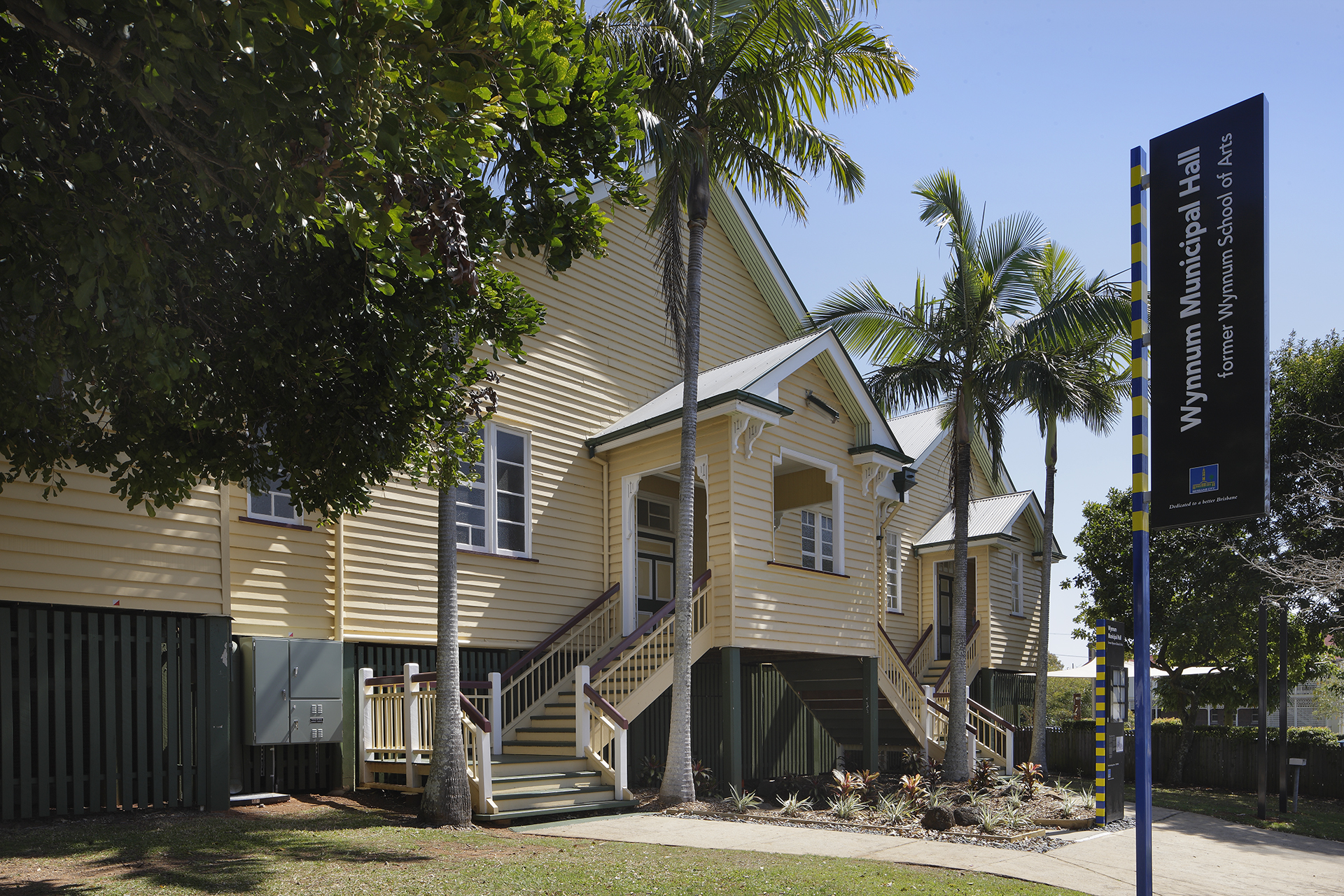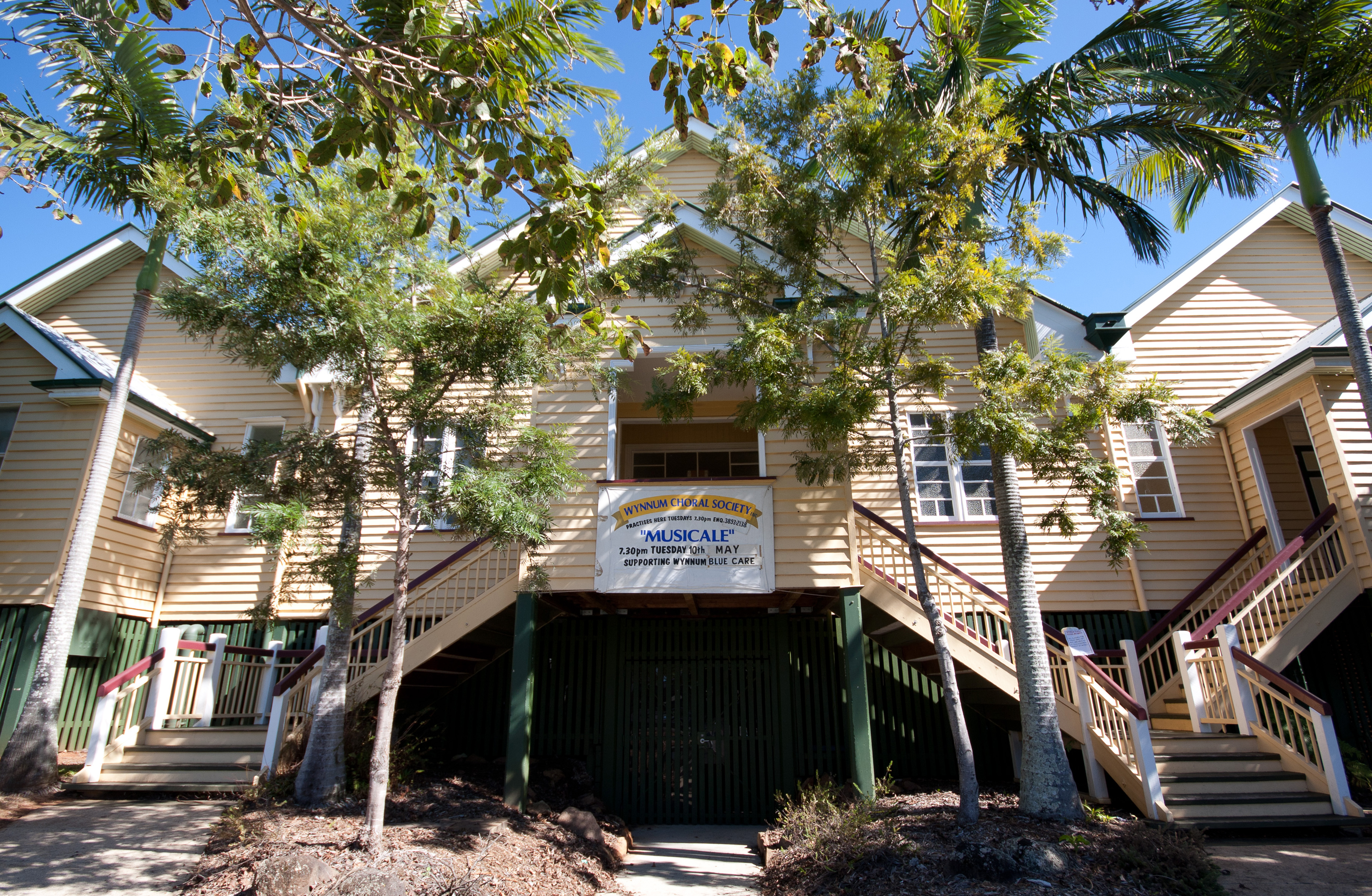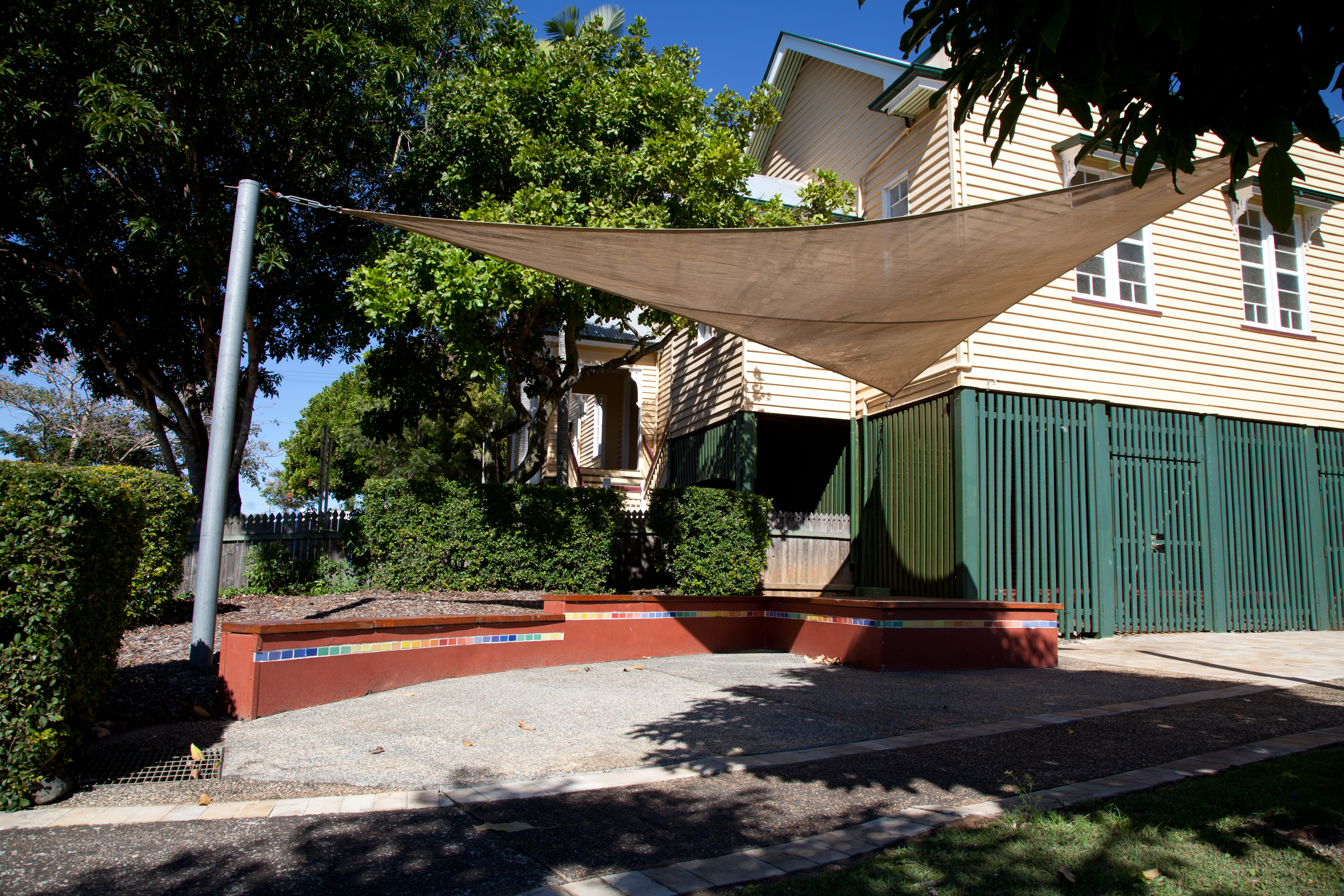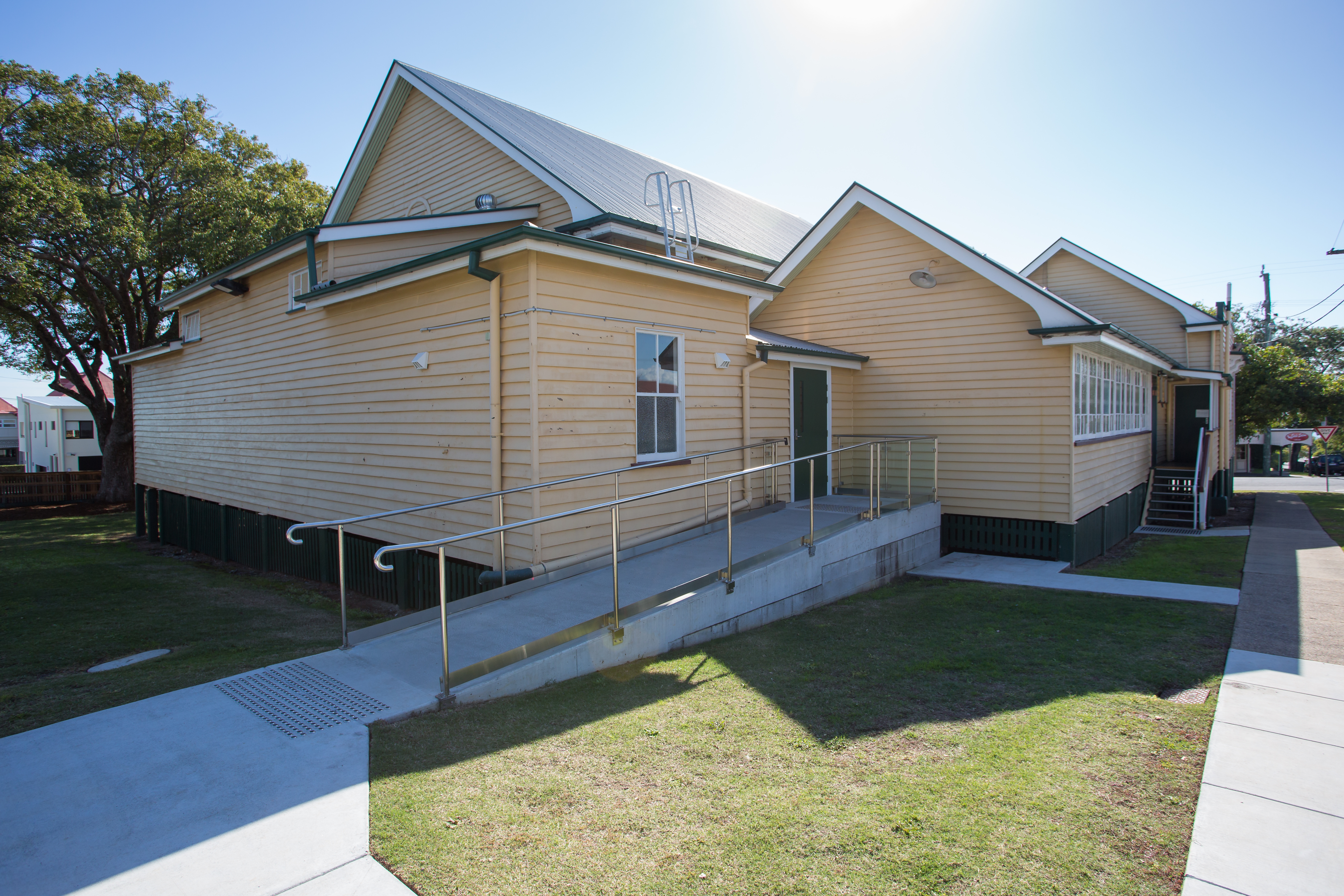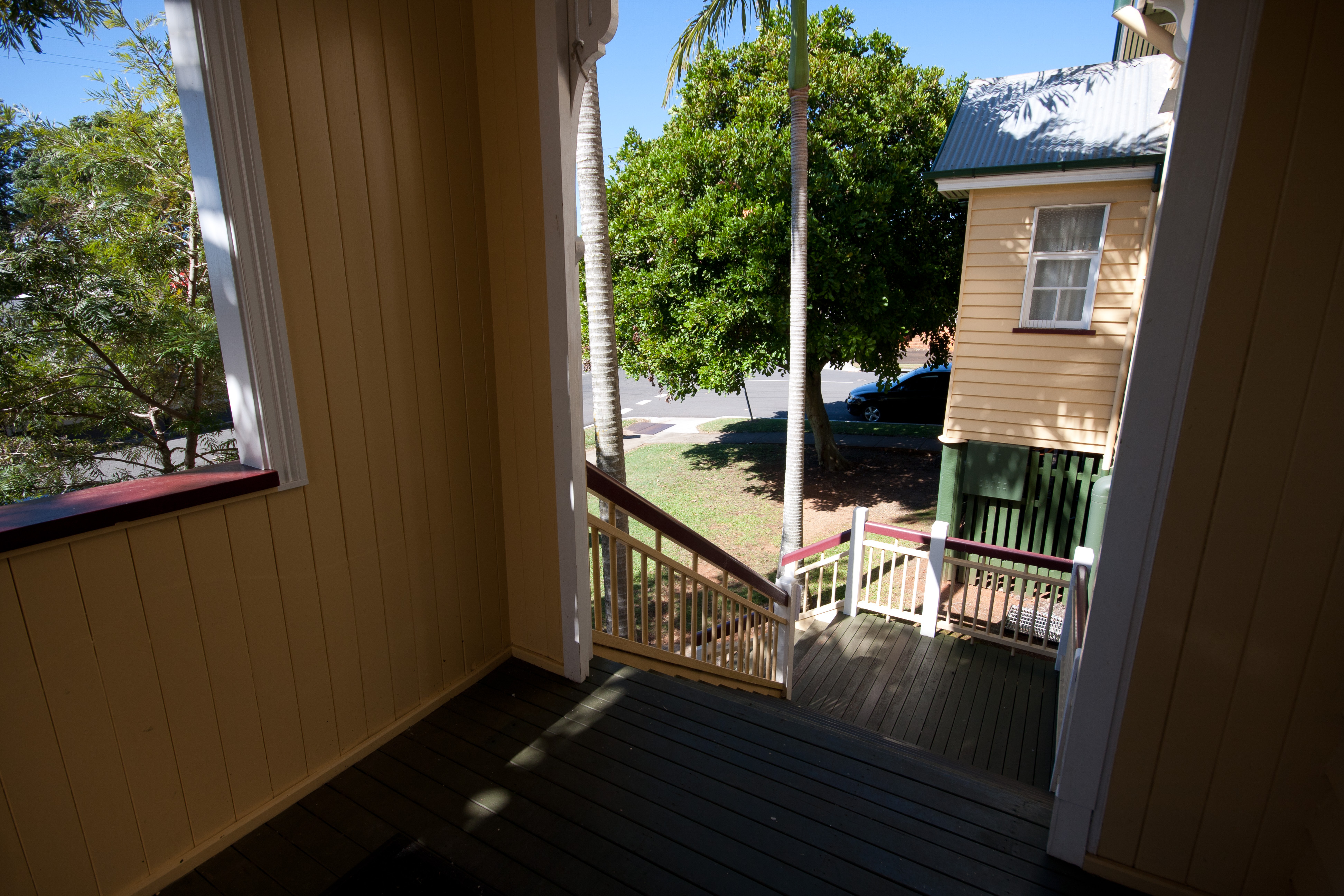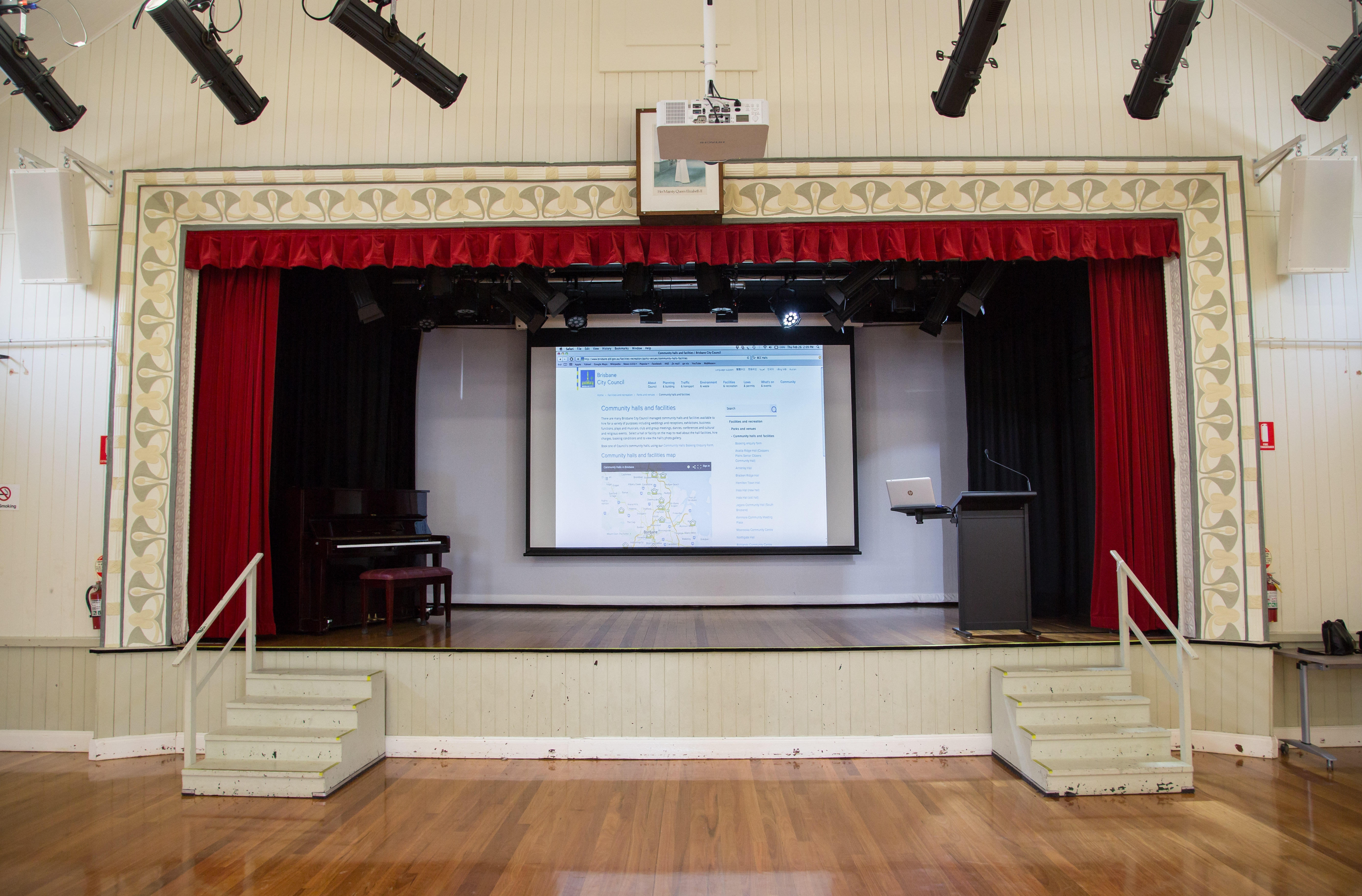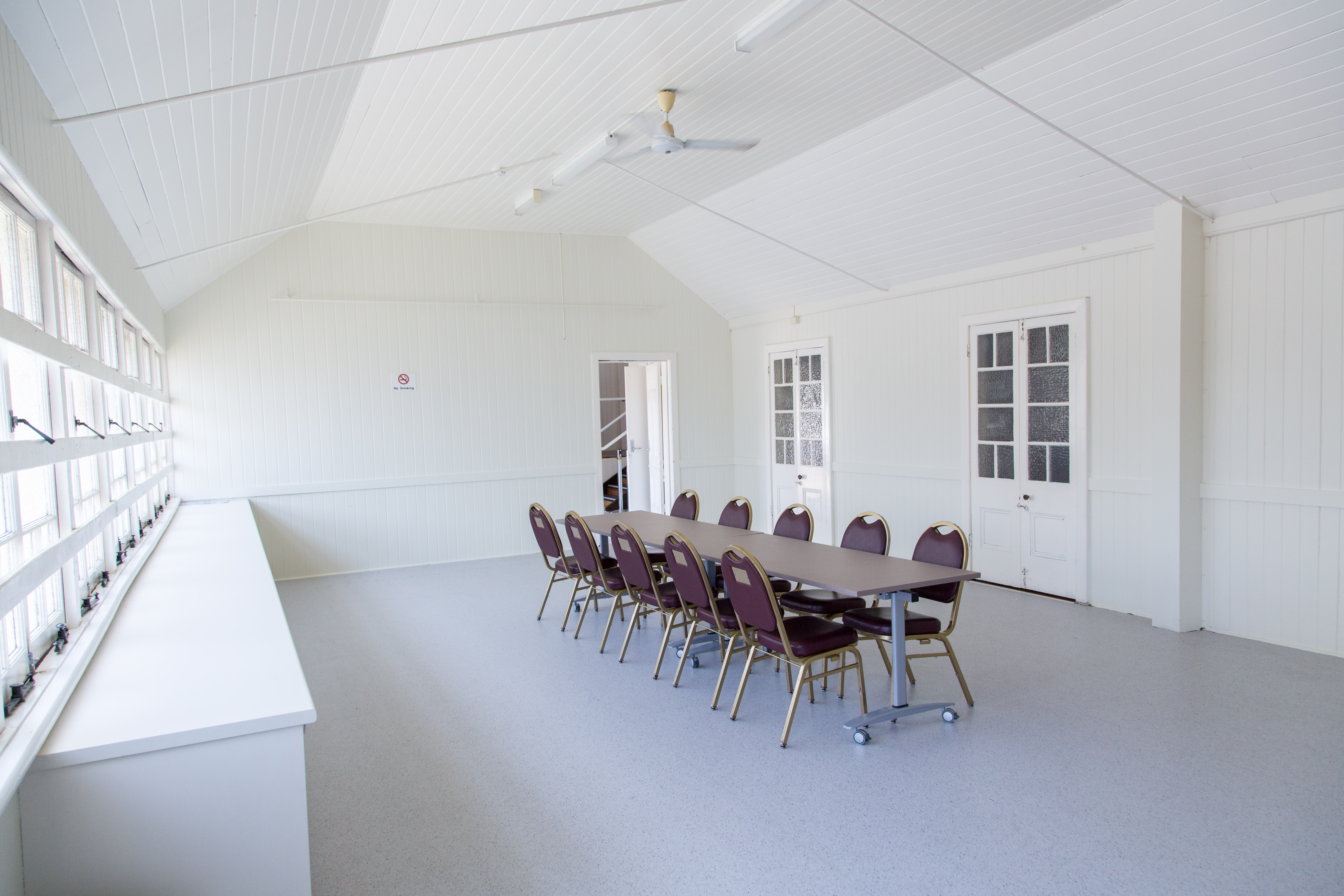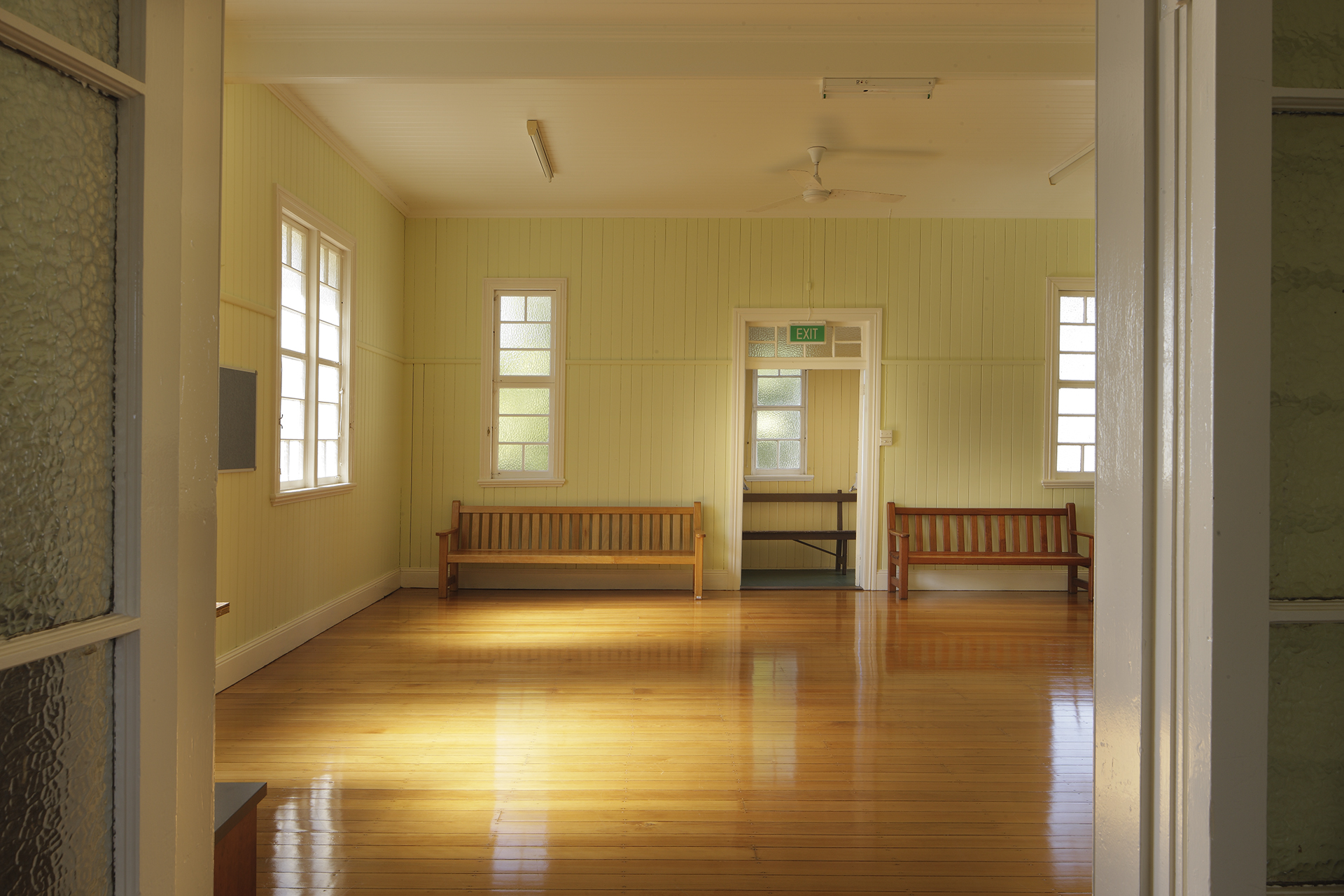Addresses
Type of place
Hall, Library
Period
Federation 1890-1914
Style
Carpenter Gothic
Addresses
Type of place
Hall, Library
Period
Federation 1890-1914
Style
Carpenter Gothic
The Schools of Art movement flourished in Queensland from the mid-nineteenth century, providing local communities with access to subscription funded libraries, public education classes and meeting facilities. Wynnum and Manly residents erected their own School of Arts building in 1913. A substantial community library was developed in the inter-war period, however, after WWII Brisbane City Council proposed a municipal library system, the School of Arts library was integrated into that scheme. The former Wynnum and Manly School of Arts building has remained integral to the needs of the local community.
Also known as
Wynnum Community Centre
Lot plan
L457_SP259917
Key dates
Local Heritage Place Since —
Date of Citation —
Construction
Roof: Corrugated iron;Walls: Timber
People/associations
Henry Wallace Atkinson (Architect);Peter Olsen (Builder)
Criterion for listing
(A) Historical; (B) Rarity; (E) Aesthetic; (G) Social; (H) Historical associationInteractive mapping
Also known as
Wynnum Community Centre
Lot plan
L457_SP259917
Key dates
Local Heritage Place Since —
Date of Citation —
Construction
Roof: Corrugated iron;Walls: Timber
People/associations
Henry Wallace Atkinson (Architect);Peter Olsen (Builder)
Criterion for listing
(A) Historical; (B) Rarity; (E) Aesthetic; (G) Social; (H) Historical associationInteractive mapping
History
Brisbane had been able to support its first School of Arts in 1849. The Mechanics’ Institutes and Schools of Art movement flourished in the later parts of the nineteenth
century, aided by subscription and suitable injections of government funding. In Britain, free municipal libraries were taking over the business of lending books, however local authorities in Australia were reluctant to bear the cost of public libraries, seemingly content to sporadically support existing institutions. Even though local government authorities in Queensland were enabled by act of parliament to develop municipal libraries from 1878, none did so.
In the half-century or so before World War I many city suburbs and country towns organised their own Mechanics' Institute or School of Arts, which usually provided free or subsidised library service and meeting hall facilities for the community. In the early twentieth century Wynnum a building committee was formed and fund-raising began in earnest. The land was acquired in the trustee’s name in 1911. Architect W.H. Atkinson was appointed to an honorary position on the committee, and produced the design of the building. Financing of the building and equipment was covered by Alexander Cunningham. The contractor, Olsen is presumed to be Peter Olsen, a Manly builder.
The main hall of 15m by 12m, and the front rooms of 7.5m by 12m were erected at a cost of £900. The Wynnum and Manly School of Arts was opened in December 1913.
Tenders to supply glass screens for the verandas, and for building a library under the building, were accepted in November 1918. The building was considerably enlarged approximately twenty years later. The extension enabled the use of the building as a concert and dance hall complete with cloak and supper rooms, a substantial library, which, in 1933, held 7300 books, and a reading room for newspapers and periodicals. The School of Arts library was supported at that time by more than 300 subscribers. Over the next decade subscribers began to decrease, no doubt brought about in some part to the economic recession and the advent of World War 2.
After the War, the launch of the civic library scheme in 1945/46 resulted in the Brisbane City Council approaching the trustees of the Schools of Arts libraries to come under the Council’s control. The Wynnum School of Arts Library was one of the early Brisbane libraries to come under the scheme. In 1946/47 more than 1000 books and magazines were purchased for the library by the Council, and the subscriber numbers had climbed back to 220. The numbers continued to increase as the municipal library scheme expanded.
In 1977 the Library relocated from the School of Arts to the Wynnum Civic Centre, on the opposite side of Bay Terrace. Today the hall is used for meetings, functions and classes.
Statement of significance
Relevant assessment criteria
This is a place of local heritage significance and meets one or more of the local heritage criteria under the Heritage planning scheme policy of the Brisbane City Plan 2014. It is significant because:
References
-
Wynnum Community Centre, Conservation Management Study, BCC, 2001
Citation prepared by — Brisbane City Council (page revised August 2025)
